TECH PLANTER, which promotes social implementation of science and technology, has entered its sixth year and has become the largest real-tech venture ecosystem in Asia. Based on this review, the TECH PLANTER has been transformed into a "Deep Issue & Deep Tech Explorer" that solves unsolved "deep issues" with "deep tech," an aggregation of science and technology. Issue & Deep Tech Explorer," which solves unsolved issues with "Deep Issue" through "Deep Tech," a collection of science and technology.
Changes in the Concept of Social Contribution by Businesses
In the 20th century, when "people's happiness" was defined as the satisfaction of "improving convenience and quality of life," delivering flawless products and services for this purpose was a way for companies to both grow and contribute to society, enriching customers and stakeholders and ultimately becoming a driving force for economic growth. In the past 30 years, however, companies that are supposed to contribute to "human well-being" have come to be expected to contribute to society in other ways. The background to the promotion of CSR (Corporate Social Responsibility) activities is the increase in the number of stakeholders involved in the value chain due to the expansion of corporate scale, the fact that a company's activities and compliance have a significant impact on society, the fact that companies are considered partly responsible for problems such as environmental destruction and poverty caused by the progress of globalization, and the fact that active corporate involvement in solving these problems is demanded. In addition, companies are now expected to take an active role in solving these problems. In the 2000s, however, the Japanese government began to take its own initiatives in response to domestic conditions and global trends, including the publication of ISO 26000 (the international standard for social responsibility) and the Japan-Korea Joint Seminar on Social Responsibility (JCSS). In the 2000s, however, the publication of ISO 26000 (an international standard for social responsibility) and the revision of the Charter of Corporate Behavior by Nippon Keidanren (Japan Business Federation) have also progressed, and there has been a shift toward a response based on international perspectives.
Against this backdrop, Michael Porter proposed the concept of "CreatingShared Value (CSV)" in 2011, which emphasizes the importance of balancing business growth with the resolution of social issues. This perspective is already widely accepted and is becoming one of the guiding principles for corporate management. In addition, as of 2019, one of the keywords of interest to companies will be the Sustainable Development Goals (SDGs), the Millennium Development Goals (MDGs) that the United Nations has been working on as development goals by 2015. Unlike the MDGs, the SDGs require the active involvement of the private sector.
Thus, in future corporate management, it will be a major imperative for companies to engage in activities that contribute to society as part of their management, and to balance their main business with social contributions.
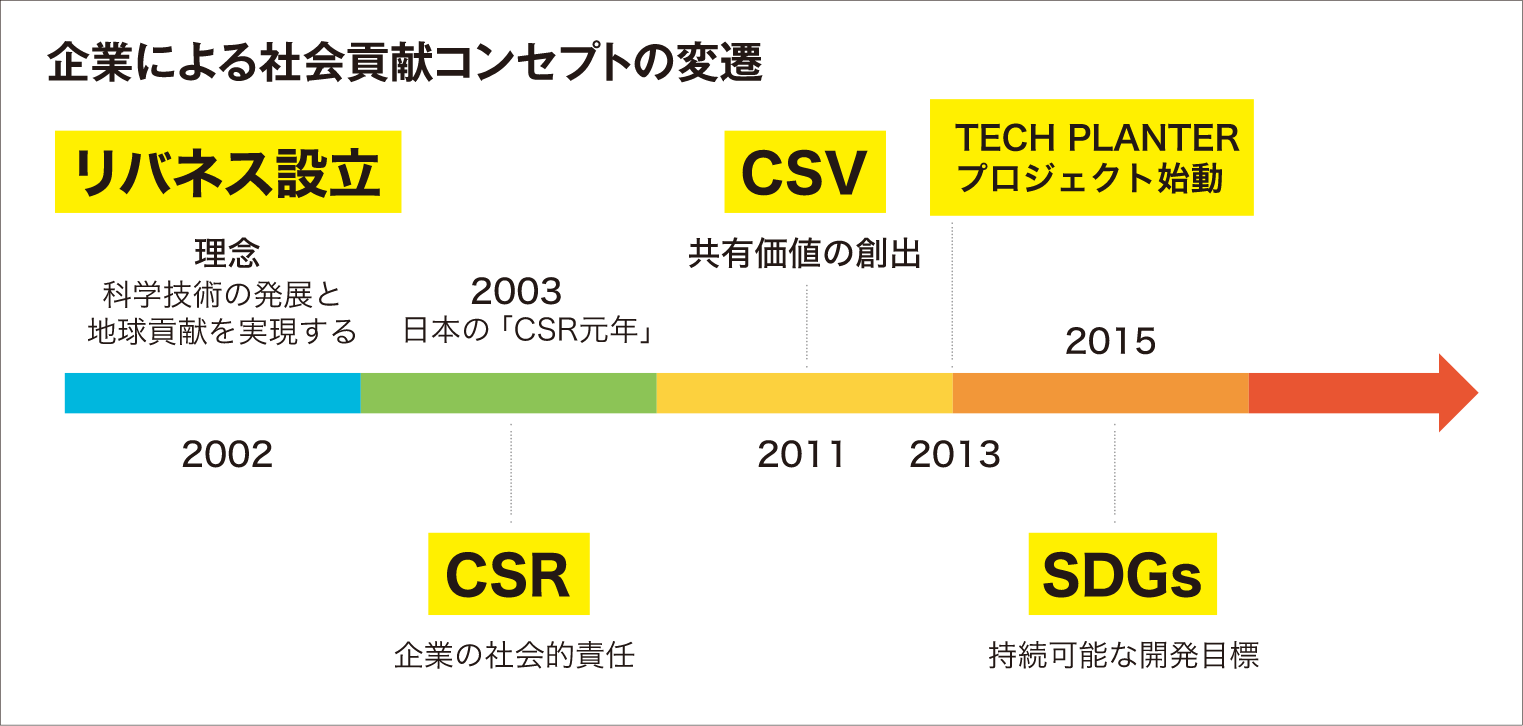
Rivanes was created to "realize the development of science and technology and contribute to the earth.
Founded in December 2001 by 15 undergraduate and graduate students of science and technology, LIVERNESS was established with the management philosophy of "realizing the development of science and technology and contributing to the global community" from the very beginning. This philosophy was born out of the sincere thoughts and passion of the 15 student founders, who had no experience in business management, as well as their desire to realize their goals. The vision that the business was headed for was itself a contribution to the earth, which was unique in the social context of the time.
The first issue that RIVERNESS addressed was children's disillusionment with science. Based on the concept of "turning a familiar mystery into an interest," the company launched a business of on-site experiment classes to nurture the next generation of researchers. In addition, to solve issues surrounding researchers such as the post-doctoral problem and lack of research funding, the company has worked to foster science-related human resources, develop careers, and commercialize the Liberace Research Fund to grow the business. All of these projects are based on the idea of finding issues that need to be resolved in order to "realize the development of science and technology and contribute to the earth" from the environment they have come into contact with, and working passionately to solve them fundamentally.
As a result of these activities, Liberace gained two important assets. One is the concept of the "QPMI cycle," which is used to produce 1 from 0. For more details, see "A World-Changing Business Comes from the 'Passion' of Just One Person." (written by Yukihiro Maru, published by Nihon Jitsugyo Shuppansha, 2014) for details, but based on the growth of businesses created at LIVERNESS and venture companies supported by LIVERNESS, such as Euglena Co. The second is that innovation and invention can occur if individuals (persons) focus their passion to a high quality problem (Question), transform it into a shared purpose (Mission) with trusted colleagues (Members), and continue trial-and-error without giving up. The second is that the current "Knowledge Platform" is based on a broad network of individuals in research, education, and industry. He believed that the knowledge possessed by individuals has heat and vectors, and that by building a knowledge platform, further new knowledge can be produced from the combination of these vectors.
For LIVERNESS, the first 10 years or so after its establishment was a period in which the company set global contribution itself as the mainstay of its business and fostered and established a foundation and management philosophy to solve various issues while creating unprecedented businesses in a circular manner based on examples that emerged from the search for such a solution.
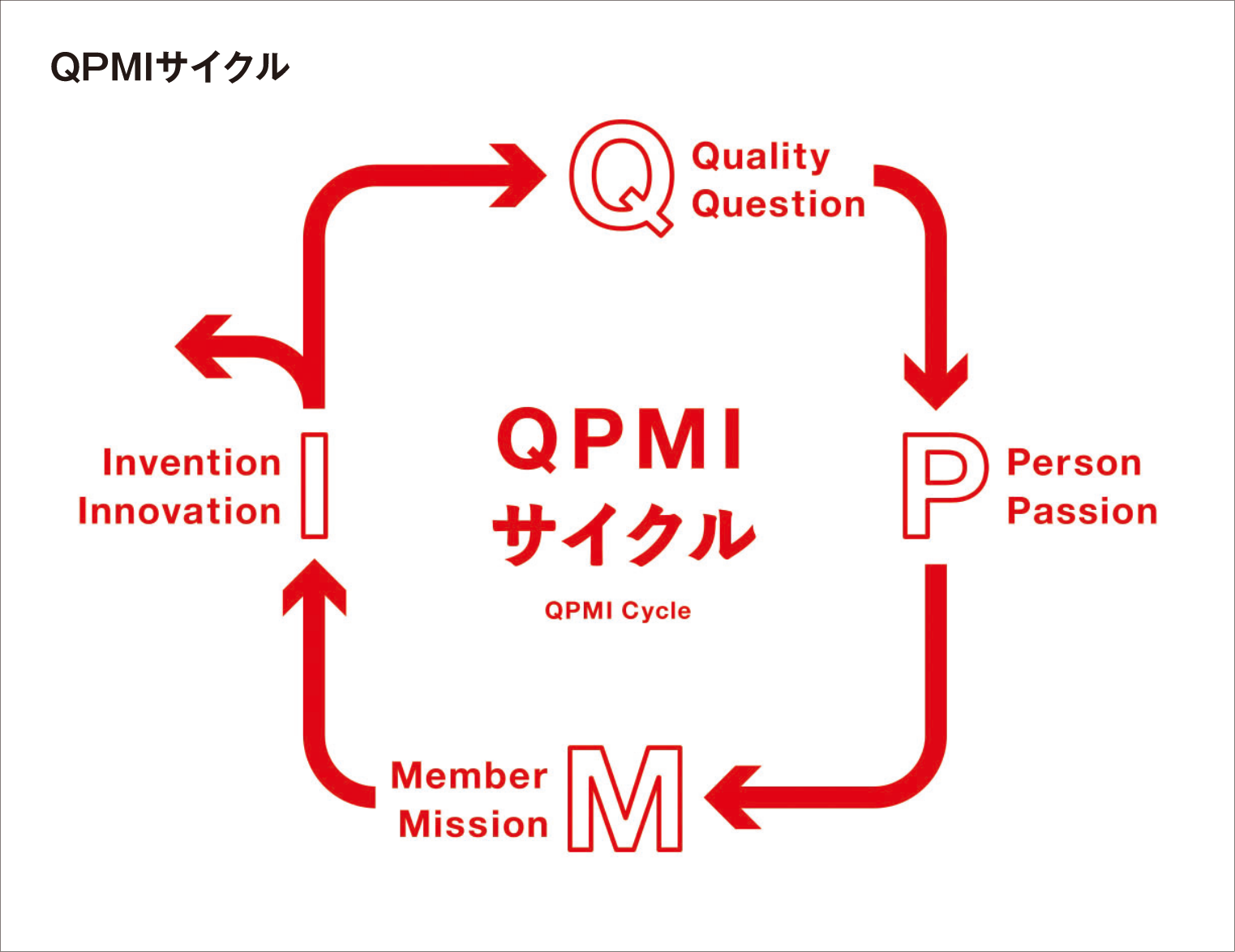
TECH PLANTER has become the largest real tech venture ecosystem in Asia
TECH PLANTER, too, began as a business that brought together passionate individuals from inside and outside the company. The impetus for this project was a combination of events, but one of the major starting points was an encounter with Hamano Seisakusho, a company that operates factories in Sumida-ku, Tokyo, where there used to be a concentration of nearly 10,000 factories, but due to changes in the business environment, the number has decreased to about 1/3. As a new business for the town factories, Hamano Manufacturing started working with RIVANES to provide prototyping support to researchers and venture companies. It was also during this period that RIVERNESS witnessed the emergence of several seed acceleration programs through training programs for Tokyo Metropolitan University's graduate students in the West Coast region of the U.S. since 2008. In addition, Euglena Co., Ltd. was listed on the Tokyo Stock Exchange's Mothers market in 2012, and hands-on support for several R&D ventures, including Oly Research Institute, Inc. and Gene Quest Inc. began to increase in parallel.
In this business environment, TECH PLANTER began in October 2013 as a small project within LIVERNESS as "the world's first program in which researchers, local factories, and management support organizations work together to create and nurture tech ventures. At the beginning of the year, in January 2014, a kick-off meeting was held for researchers and venture companies that were candidates for entry teams, and in March 2014, the first demonstration day, the "1st Tech Planter Grand Prix," was held with the cooperation of Japan Tobacco Inc. and other partners. There, we met the Grand Prize winner, Mr. Atsushi Shimizu (current president of Charenergy Co., Ltd.), and others who were trying to develop technologies and businesses to solve problems and questions they had set themselves, in other words, to solve problems themselves as businesses. In June 2014, TECH PLANTER was launched in Singapore, the first overseas TECH PLANTER. This was followed by TECH PLANTERs in Southeast Asia, Europe, and the United States. In Japan, the target fields were expanded.
In September 2014, the second Tech Plan Grand Prix was held, and in November of the same year, the program was expanded to the agri-tech field with the cooperation of Rohto Pharmaceuticals, Omron Corporation, Yoshinoya Holdings Co. By the end of the 2014 season, the total number of teams entered exceeded 100, creating a new knowledge platform for RIVERNESS and its partners.
In 2015, the Diamond Partner System was launched as a partner system to collaborate with entry teams across the three fields of "deep tech" for general manufacturing, "agri-tech" for agriculture, forestry, fisheries, and food, and "biotech" for life science and healthcare. Partner System was launched. In the same year, the Real Tech Fund was established with Euglena, SMBC Nikko Securities, and LEVANES, and in addition to GLOKA LINK Corporation, which makes small investments in the angel round, a system was created to seamlessly provide financing to venture companies in the seed-early stage. Based on this, TECH PLANTER became a "social implementation platform for science and technology.
In April 2016, Kumamoto Prefecture, Higo Bank, Kumamoto University, Kumamoto Industrial Association, and LEVANES signed a "Collaboration Agreement to Discover and Nurture Next-Generation Ventures in Kumamoto Prefecture" with the aim of building an ecosystem to spawn new industries in the region as a unique move. In July of the same year, the first Kumamoto Tech Plan Grand Prix was held. Plans created based on local issues, research, and industrial infrastructure are important assets for the future of the region; in 2017, the field was expanded to include marine tech for all plans related to the sea, and in 2018 to include medtech for the drug discovery and medical device fields.
By the end of the 2018 season, TECH PLANTER had grown into a program that supports start-ups in five technology fields, with a cumulative total of 610 teams participating. In addition, the program operates its own programs in 9 regions in Japan in collaboration with government agencies, universities, and regional banks, and has been held in 13 regions in 10 countries overseas, with a combined total of approximately 1,600 teams participating in Japan and overseas. The total amount of investment from angel rounds, Glocalink and real-tech funds in the seed stage for the teams that entered the program exceeds 3.8 billion yen. The total number of Diamond Partners throughout the year has reached 23, making it more than just an acceleration program, but the largest real tech venture ecosystem in Asia. We would like to take this opportunity to thank the many entry teams, management support partners, companies participating in the Super Factory Group, spot partners at each demo day, and a cumulative total of 23 Diamond Partners for their support.
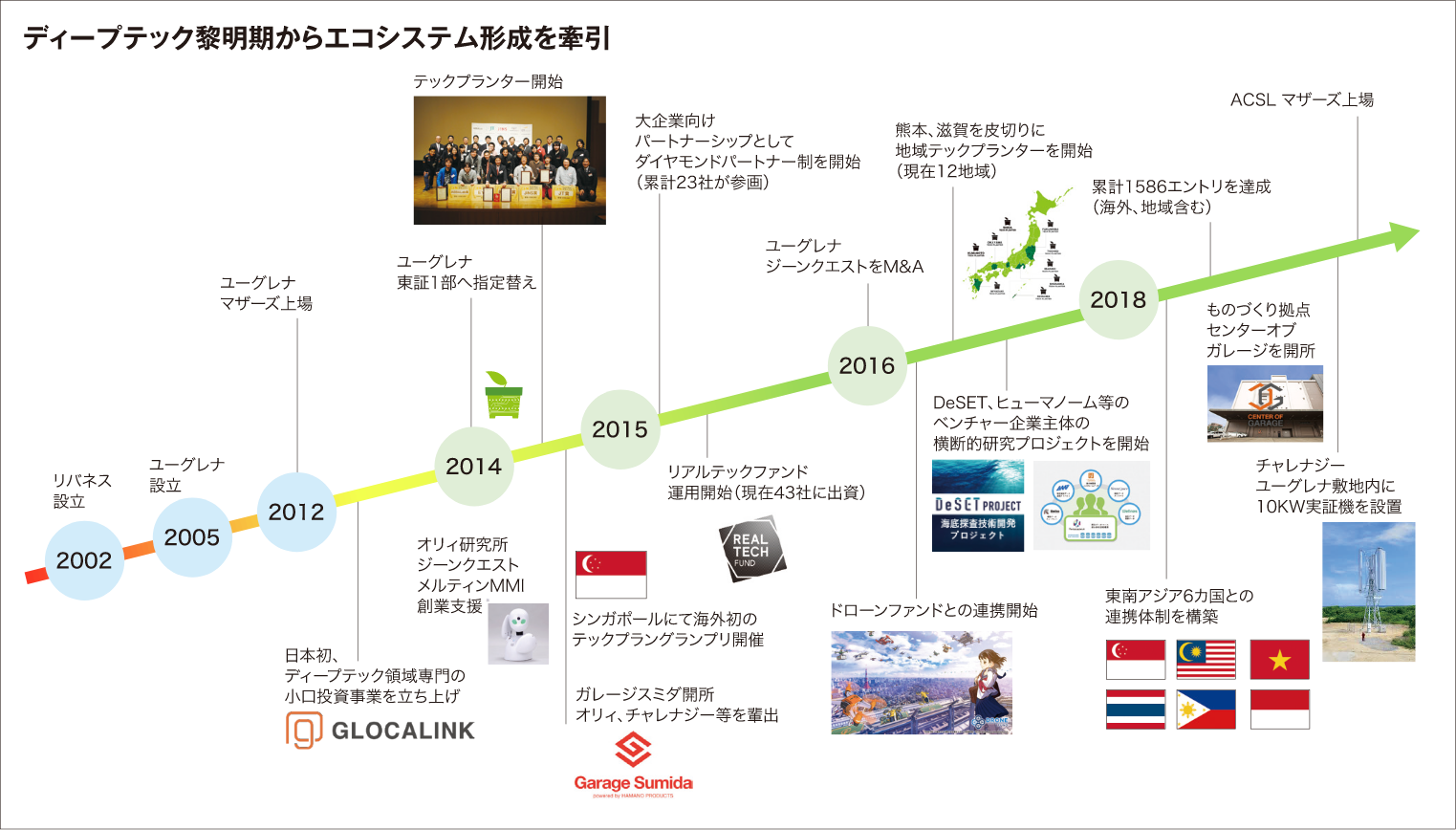
A New Definition of Deep Issue Deep Tech
Through the operation of the TECH PLANTER to date, we believe that there are two important points concerning issues and technology. We would like to take this opportunity to delve into these two points.
In TECH PLANTER, the primary importance is the enthusiasm of individuals who are willing to tackle the issue. If there is a passion for the issue, one can look not only at the surface of the issue, but also deeply consider how to solve it, look at the issue with one's own eyes, break down the issue, and find a solution that will lead to a fundamental solution. As mentioned above, it is important to place problem-solving at the core of the business, and this should take precedence over the type of technology possessed. We define "deep issues" as issues that have been deepened through local insight and consideration. The TECH PLANTER, held in various regions of Japan and around the world, is a place where individuals with passion bring their own unique deep issues.
Only after the deep issue has been established should the type of science and technology that will lead to a fundamental solution to that issue be established. It does not necessarily mean that advanced technology is necessary; so-called low-tech is also acceptable. Solving the problem is the priority, and there are many issues that can be solved with low technology.
Mr. Izumo of Euglena went to the slums of Bangladesh to provide assistance, and upon learning about the situation there, he discovered that the real problem was not a lack of food, but a lack of nutrition. He came across green lacewing as a material with the potential to fundamentally solve nutritional deficiencies, but the company did not have mass cultivation technology for green lacewing from the time of its founding. The world's first mass cultivation of greenbugs was achieved thanks to the results of research conducted over many years by Professor Emeritus Nagahisa Nakano of Osaka Prefecture University and others, as well as the availability of a cultivation pool with the cooperation of Yaeyama Seed Products Co. Ui of ABA Corporation, having spent time in the nursing care industry and learned that there are significant challenges in the labor of excretory care, is now developing devices to solve those challenges by utilizing his core robotics technology. Toy Medical Co., Ltd. has been in contact with many dialysis patients in the course of manufacturing and selling medical consumables, and when he learned that dietary restrictions were reducing their quality of life, he set out to develop a dietary supplement that would prevent salt absorption. The supplement "Del Salt" developed by the company does not utilize any special new ingredients. It is a combination of ingredients such as seaweeds, which are relatively commonly used in foods. The most effective ratio for salt inclusion was found, and the product was commercialized.
TECH PLANTER also provides an opportunity for new technologies to be created through the alliance of technologies and assets of the entry teams and partner companies. Charenergy Corporation, founded by Mr. Shimizu, the grand prize winner of the first TECH PLANTER Grand Prix, has been developing a prototype Magnus-type wind turbine generator in collaboration with Hamano Seisakusho, and has proceeded with the demonstration in collaboration with partner companies such as Nihon Unisys, Ltd. and THK Corporation, and in 2018, a 10kW test system was installed on Ishigaki Island in A 10kW test unit, which is positioned as a mass production prototype, was installed on the Euglena Group's premises. The company is also pursuing funding from partners such as Glocalink, Real Tech Fund, THK Corporation, and Kobashi Kogyo Corporation, and is pushing forward with the demonstration in the Philippines. Team Metagen, which won the top prize in the first Biotech Grand Prix, established Metagen Inc. with a core technology to analyze the intestinal environment through metabologenomics, led by Fukuda, who was the team's representative. In addition to technological development with Morishita Jintan and Kyowa Hakko Bio, six partner companies are also participating in the Gut In 2019, MGNavi®, a next-generation intestinal environment evaluation and stratification service, will be launched for medical institutions and companies. NeuroSpace Inc. had a business plan focused on sleep based on a sleep disorder he suffered from, but initially had no technology and was selected as a finalist in the third Tech Plan Grand Prix, which he entered with a research company from Tsukuba University. As a result of his presentation as a finalist, Yoshinoya Holdings CEO Yasutaka Kawamura, a member of the jury, took notice and began offering a sleep improvement program to Yoshinoya Co. platform and began a demonstration experiment with Yoshinoya.
In this way, heat, ideas, and technology are brought together in the TECH PLANTER ecosystem, and through a series of "knowledge manufacturing" processes that combine them, the result is progress toward solving the issue. We would like to redefine "deep tech" as technology that evolves to solve deep issues through this process.
In this way, TECH PLANTER can be described as a "Deep Issue & Deep tech Explorer" that uses the collective power of science and technology to solve unsolved deep issues. It is not a place to simply enter and make a presentation, nor is it a place to just get a list of teams and be done with it. The most important thing is to use the Demo Day as an opportunity to start taking concrete steps forward. It makes sense to meet entry teams and partners, get in touch with passionate individuals, and really make something happen with Demo Day as a starting point. This will create new deep tech, which will encourge the organizations involved in this ecosystem to solve deep issues, and the result will be innovation.
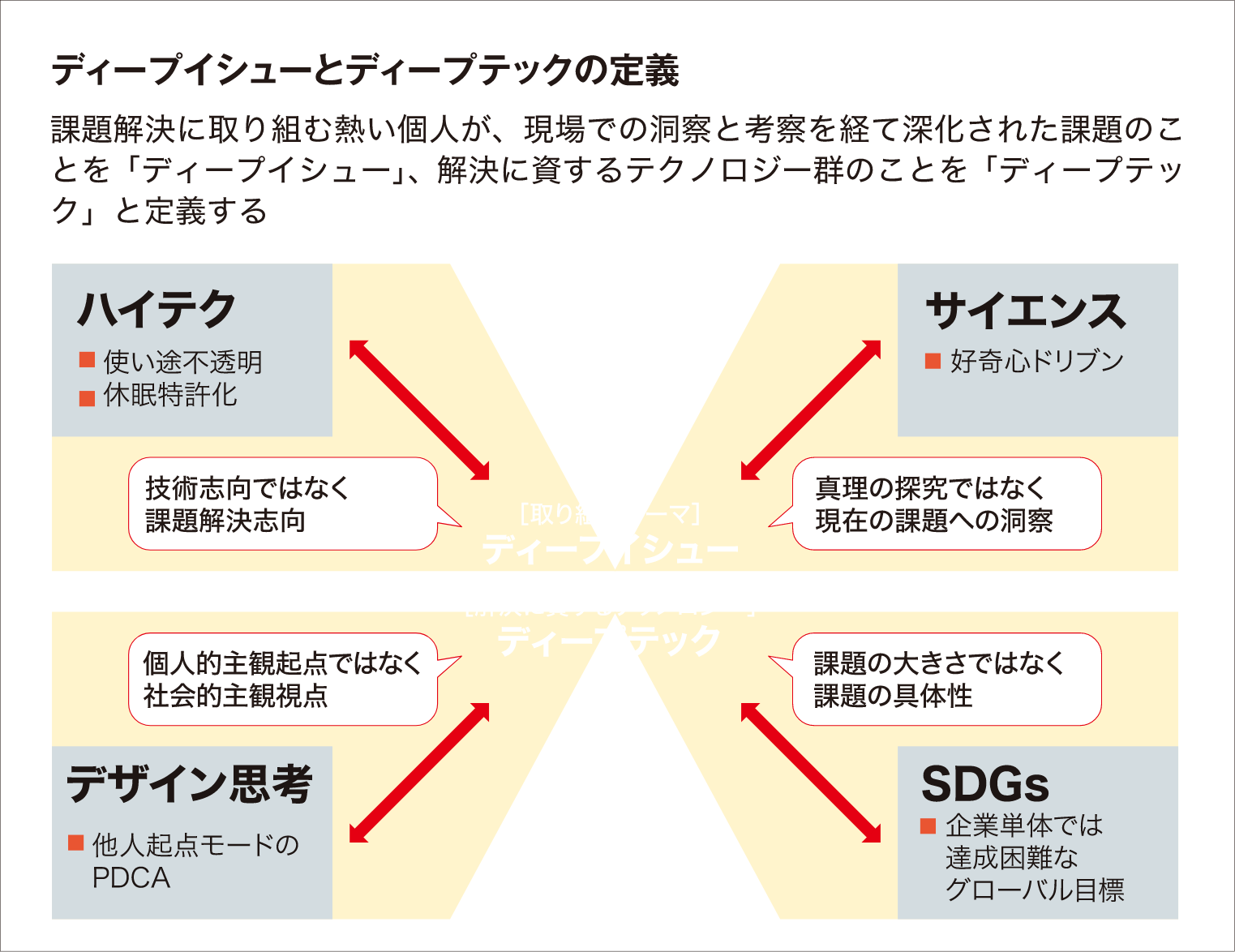
Establishing deep issues in 8 fields, and becoming a place to give birth to deep tech driven by these issues.
From the next season onward, we will proceed with the next phase of evolution. First, in order to sharpen the capabilities of the Deep Issue & Deep techExplorer, which is the essence of the TECH PLANTER, we plan to change to a system in which the 842 entries collected so far will be divided into 8 categories of deep issues, and demo days will be held for each of them. Entry teams will be able to look again at the origin of their own plans to see what deep issues they are based on. The Diamond Partner Program, which covers all fields, will end this year, and partner companies will be able to focus their participation on deep issues that match their own business units' areas of interest. The program will also promote serendipitous encounters between deep issues and technology in each region to accelerate the resolution of deep issues. The question of what quality and quantity of issues to solve in which region, in other words, is tantamount to market development. There are cases where technologies that do not solve deep issues in Japan can lead to fundamental solutions in other regions. As long as the form is driven by deep issues, the more technologies can be encountered, the more likely they are to be solved. In addition, we would like to promote a framework in which multidisciplinary teams are formed to solve issues that transcend positions, and from 2019, in collaboration with the Nippon Foundation and JASTO, LIVERNESS is launching Project Ikkaku, a project to create businesses that will realize marine litter reduction. We hope that the ecosystem created by TECHPLANTER will lead to the creation of many similar projects. I would like to see many similar projects emerge through the ecosystem created by TECHPLANTER.
Now in its sixth year, TECH PLANTER has reached a major milestone in its next phase, and as Deep Issue & Deeptech Explorer, we look forward to your continued support of this project to advance science and technology and contribute to the Earth.
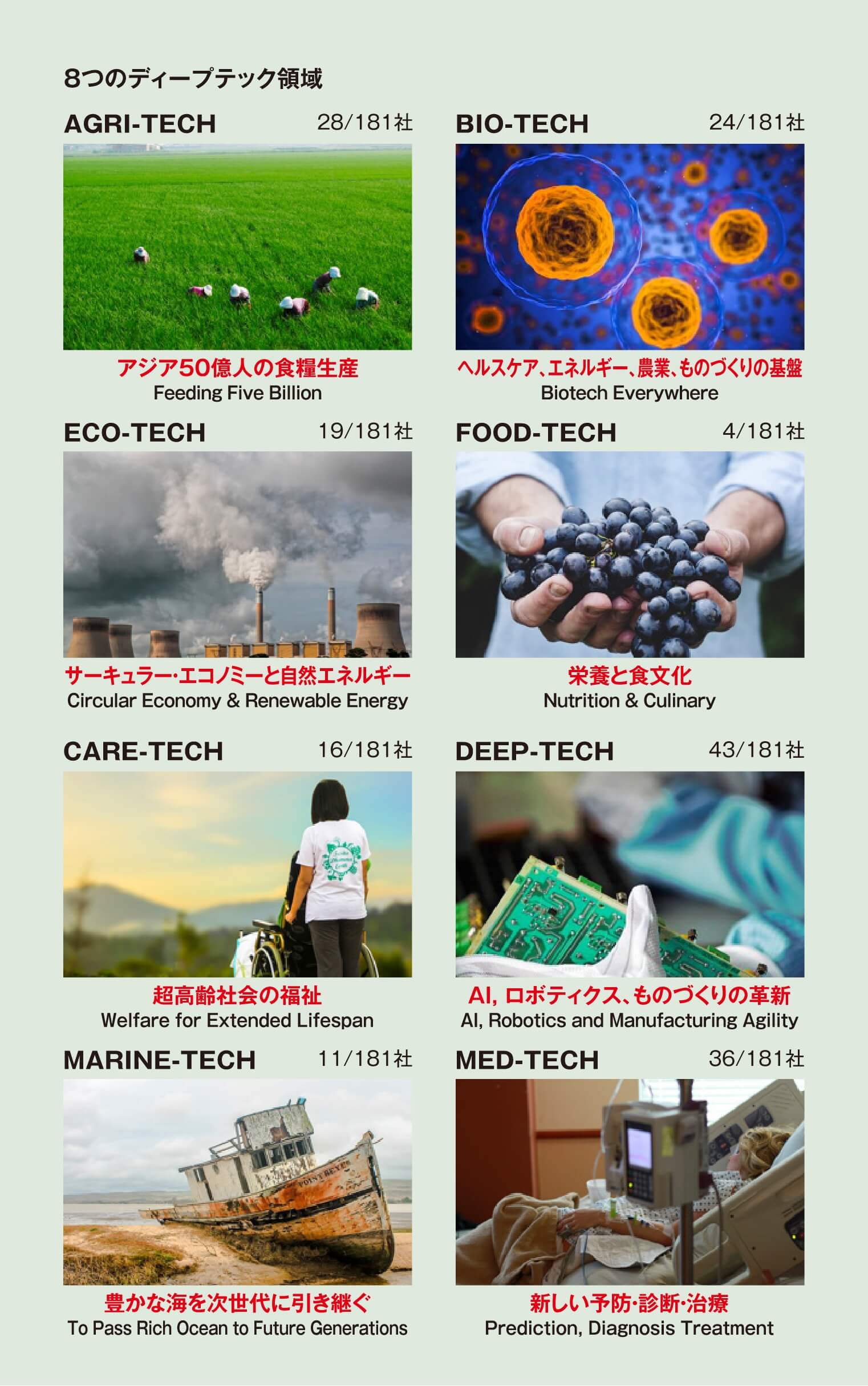
Source: tsukada, Shuhei (2019). Supporting Foundations 15, 20-21.

